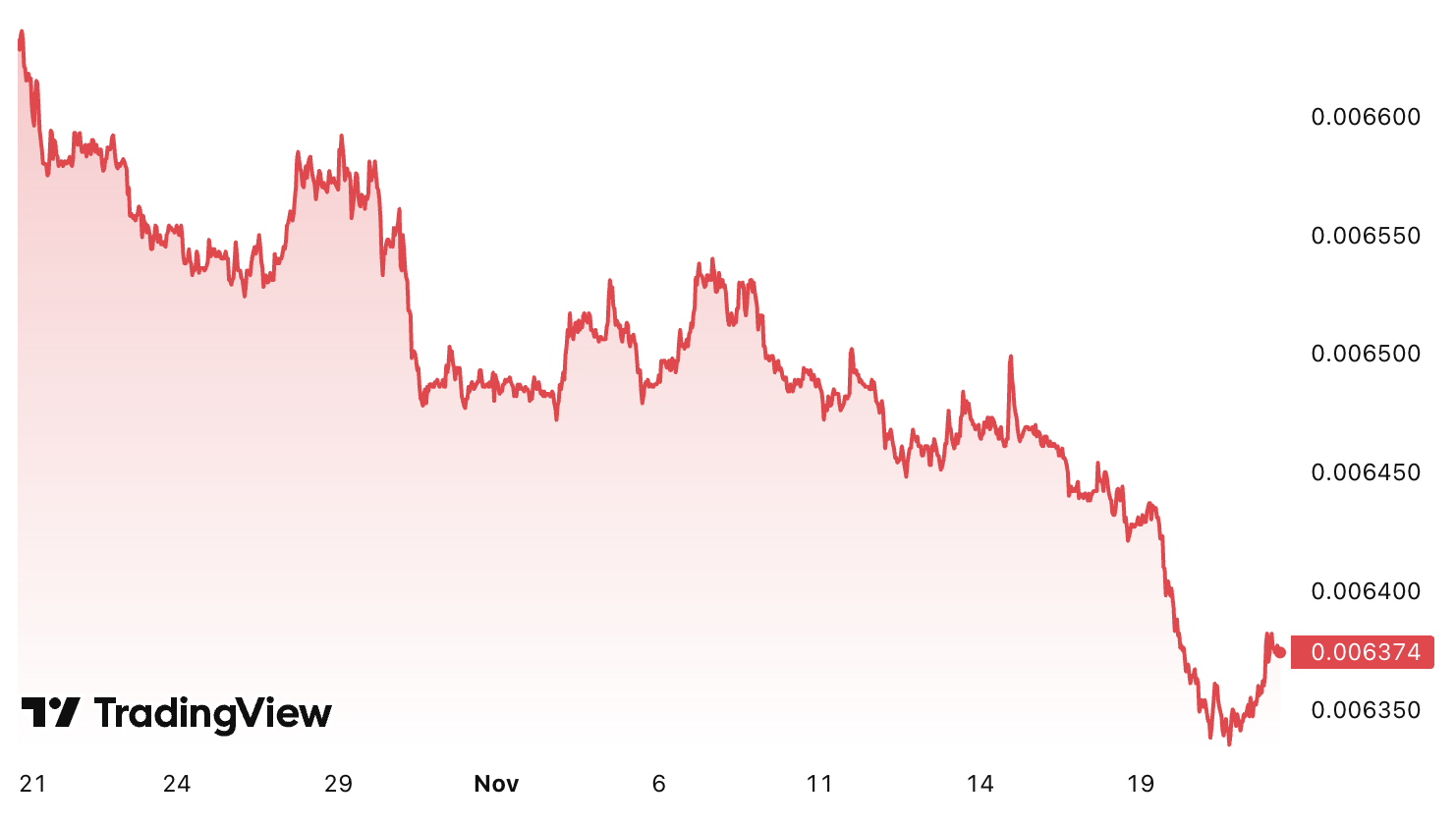
Bitcoin's Downturn Linked to Yen Decline as Canada Sets Stablecoin Regulations
Recent developments in Japan and Canada are impacting global cryptocurrency markets, notably Bitcoin.
Overview
Japan’s recent approval of a massive stimulus plan is sending shockwaves through global markets, including cryptocurrencies like Bitcoin. Measures aimed at reducing energy costs and inflation are raising concerns as the yen declines sharply against the US dollar.
 The yen has been declining.
The yen is down over 3% since Takaichi was elected, exactly one month ago on Oct. 21. Source: TradingView
The yen has been declining.
The yen is down over 3% since Takaichi was elected, exactly one month ago on Oct. 21. Source: TradingView
Prime Minister Sanae Takaichi’s team anticipates this fiscal intervention will ease inflationary pressures, but market players remain cautious, leading to speculation about potential interest rate hikes by the Bank of Japan. The currency’s weakening has raised eyebrows as it reflects Japan’s attempts to stimulate growth amid a backdrop of increasing debt.
On a brighter note for Bitcoin, the launch of a new Bitcoin bar, PubKey, in Washington, DC, attracted attention after a surprise visit from Treasury Secretary Scott Bessent, which some took as a positive signal in the crypto community.
Canada Moves Forward with Stablecoin Oversight
In Canada, Prime Minister Mark Carney’s budget plan includes regulations for stablecoin issuers, marking a significant step for the sector. Issuers will be mandated to maintain sufficient reserves and have clear redemption policies under Bank of Canada supervision.
UK Crackdown on Crypto Money Laundering
In the UK, authorities are investigating a major money laundering scheme linked to Kyrgyzstan’s Keremet Bank, allegedly used to help finance various criminal activities. The National Crime Agency (NCA) has linked this operation to George Rossi, which involves converting illicit cash into cryptocurrency.
 NCA’s findings are concerning for smooth financial operations.
Operation Destabilise is an NCA-led international Anti-Money Laundering effort. Source: NCA
NCA’s findings are concerning for smooth financial operations.
Operation Destabilise is an NCA-led international Anti-Money Laundering effort. Source: NCA


